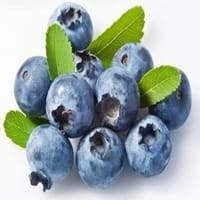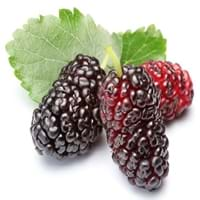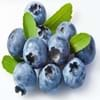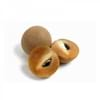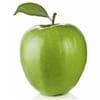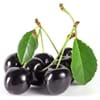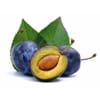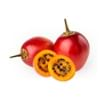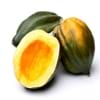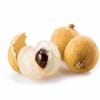Health Benefits
Cancer prevention, Cures gastro-intestinal troubles, Improves night vision, Improves stomach health, Prevents diabetes, Prevents high blood pressure, Reduces blood circulation problems
Anti-aging benefits, Boosts immune system, Cancer prevention, Flu treatment, Hair care, Heart care, Improves eye vision, Increases metabolic rate, Kidney stone treatment, Maintains healthy cholesterol level, Skin cleansing, Skin rejuvenation, Treatment of common cold, Treatment of skin Diseases
General Benefits
Fights against infections, Helps in weight loss, Prevents blood clotting in vessels, Treatment of urinary tract infections
Boosts immune system, Controls blood sugar levels, Flu treatment, Improves eye vision, Maintains healthy cholesterol level, Treatment of common cold
Skin Benefits
Anti-aging benefits, Nourishes skin, Protects against skin damage
Anti-aging benefits, Skin cleansing, Treatment of skin diseases
Hair Benefits
Prevents hair loss
Protects hair, Regulates hair growth
Allergy Symptoms
Not Available
Breathing difficulty, Itching, Nasal congestion, Redness of eyes, Runny nose, Sneezing
Side Effects
Decrease in blood sugar levels, Diarrhoea, Dizziness, Headache, Internal bleeding, Stomach pain
Decrease in blood sugar levels, Allergic reaction
Best Time to Eat
As a snack in the late afternoon, Don't consume at night and before bed, Eat the fresh ones, avoid mixing with any other foods, don't eat after meal., Morning time (before lunch)
Best if taken as a breakfast (or empty stomach), As a snack in the late afternoon, Don't consume at night and before bed, Eat the fresh ones, avoid mixing with any other foods, don't eat after meal., Morning time (before lunch)
Vitamin B5 (Pantothenic Acid)
Not Available
Vitamin C (Ascorbic Acid)
Vitamin K (Phyllochinone)
Calories in Fresh Fruit with Peel
Calories in Fresh Fruit without Peel
Not Available
Not Available
Calories in Frozen Form
Not Available
Calories in Dried Form
Not Available
Calories in Canned Form
Not Available
Not Available
Season
Summer
Spring, Summer
Varieties
Dwarf bilberry, Piper, bog blueberry, Northern bilberry, Mountain bilberry and Oval-leaved bilberry
Charparral, Pendula, Teas, Bellaire and Lingan
Color
Dark purple
Pink, Purple, White
Inside Color
Light Green
Pink
Soil Type
Moist, Well-aerated
Clay, Loam
Climatic Conditions
Cold
Sunny
Facts about
- Bilberries are used in manufacturing of alcoholic drinks.
- They are used to improve aromas of sorbets.
- The green extract of it's leaves is used in textile industry as natural dye.
- It can take up to 10 years for a tree to produce mulberry fruit.
- Mulberry leaves are fed to silkworms to enhance silk production.
- In Germany, they say that devil uses root of mulberry tree to polish his boots.
Other Countries
Denmark, Finland, Iceland, Sweden
Colombia, Egypt, India, Indonesia, Kenya, Mexico, Pakistan, Peru, Russia, United States of America
Top Importer
United States of America
Not Available
Botanical Name
Vaccinium myrtillus
Morus Alba
Synonym
blaeberry, whinberry, European blueberry, whortleberry
Morus atropurpurea or Morus multicaulis
Subkingdom
Tracheobionta
Tracheobionta
Division
Magnoliophyta
Magnoliophyta
Class
Magnoliopsida
Magnoliopsida
Subclass
Dillenhidae
Alismidae
Family
Ericaceae
Moraceae
Species
Vaccinium myrtillus
M. alba
Generic Group
Heath
Mulberry
Compare Bilberry and Mulberry
It is important compare Bilberry and Mulberry as both the fruits have a different nutritional value. Their comparison can be done on the basis of their vitamin and mineral content, calories, benefits as well as characteristics, making it easier for us to choose the best fruit for our diet. Their general health benefits are as follows:
Bilberry Benefits: fights against infections, helps in weight loss, prevents blood clotting in vessels and treatment of urinary tract infections.
Mulberry Benefits: boosts immune system, controls blood sugar levels, flu treatment, improves eye vision, maintains healthy cholesterol level and treatment of common cold.
Fruits are also used as a remedy for various hair problems. The hair benefits of Bilberry are: prevents hair loss and hair benefits of Mulberry are: protects hair and regulates hair growth. Some fruits are known to cause allergic reactions. The allergy symptoms of first fruit are: not available and the symptoms of second fruit are: breathing difficulty, itching, nasal congestion, redness of eyes, runny nose and sneezing. Get sorted Bilberry vs Mulberry comparison with the help of fruit comparison tool by fruitvs.com.
